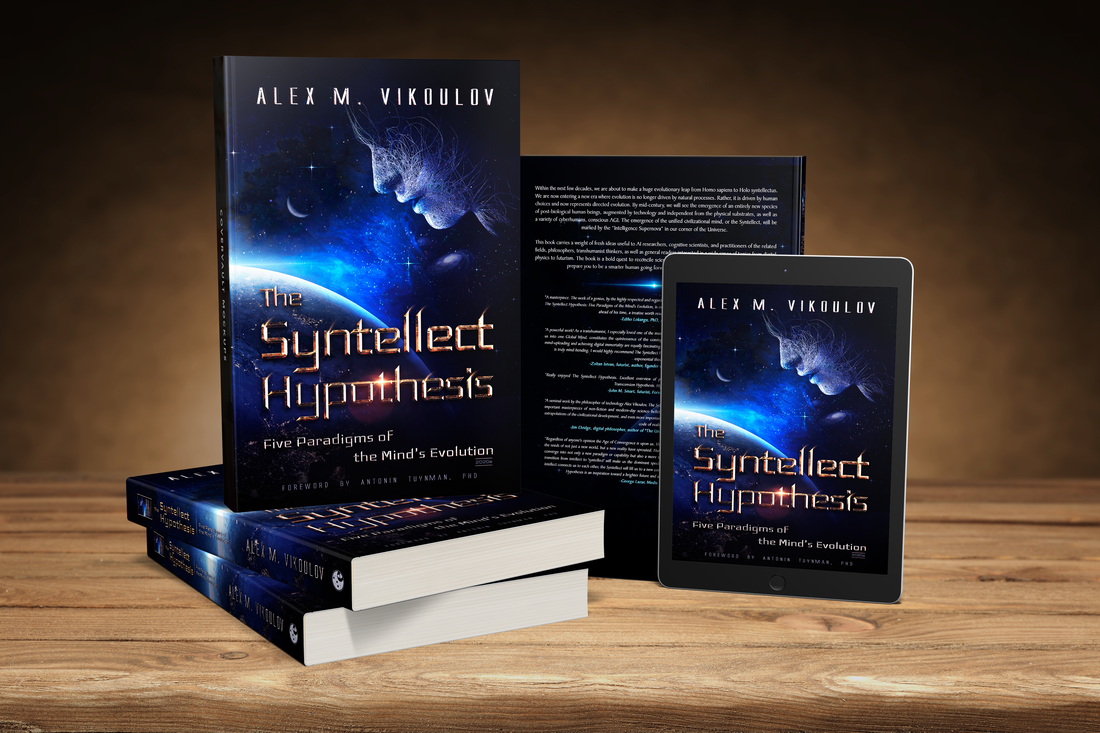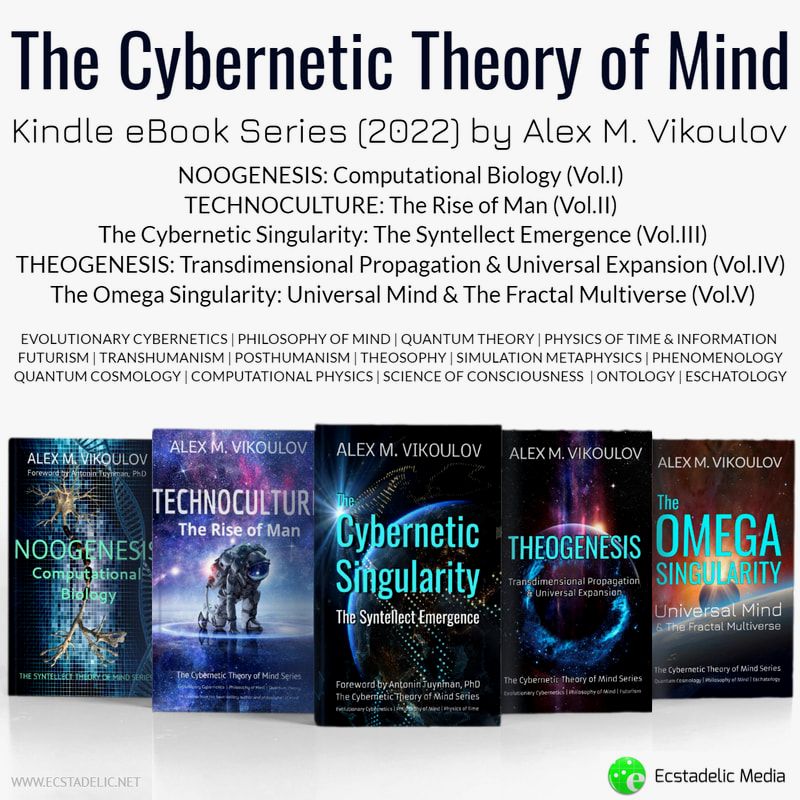
2/21/2023
by Alex Vikoulov
“To say that a world is objective means that the world’s existence does not depend on the agent.” ―Donald Hoffman
The concept of relativity pervades the field of physics, as any viewpoint ultimately boils down to a dimensionless ratio. In the realm of physical reality, a viewpoint assumes the existence of an observer and their relationship to the observed object. However, the point of quantum uncertainty exists without any such viewpoint. The fabric of space-time is made up of points that only have speed and distance relative to other points viewing them, while the points themselves remain beyond observation. As quantum physicist Vlatco Vedral explains, there is no absolute space-time, as space and time emerge from a fundamentally spaceless and timeless foundation. This challenges our classical understanding of the universe as a fixed and measurable entity and highlights the crucial role of perspective in shaping our understanding of physical reality.
In the realm of quantum mechanics, direct observation of quantum phenomena is limited. Instead, scientists rely on mathematical abstractions and complex experiments to infer the behavior of particles at the quantum level. The observable forms that do emerge are inherently nonlinear, meaning they change over time in unpredictable ways. This nonlinearity is a fundamental feature of quantum mechanics and has significant implications for our understanding of the universe. It suggests that events at the quantum level are not predetermined but rather subject to probabilistic outcomes. Additionally, it confronts our classical understanding of cause-and-effect relationships, which are based on linear, predictable interactions. Ultimately, the study of quantum mechanics requires a willingness to embrace the inherent unpredictability of the quantum world and the crucial role of the observer in creating reality itself.
The particle-wave duality is an established fact in physics, dependent on the method of measurement. Probabilities are reduced to the single actuality only when observed. In this procedural generation, pixels on the screen of “experimenting” perception – discrete particles of mass-energy leap through the quantum continuum by “trading places” with massless photons whose energy is equal to the distance leaped. A subjectivist wave function collapse serves as the interface between the quantum and the phenomenal.
To help you visualize certain concepts presented in my recent publications, I produced this documentary Consciousness: Evolution of the Mind (2021). Here’s Part I: What is Consciousness?
Entangled particles exhibit a phenomenon known as non-locality, where the measurement of a particle quality will always be correlated in its entangled counterpart, regardless of the distance between them. This suggests that the whole system determines the behavior of the individual parts, irrespective of spatial separation. Even when separated by vast distances, entangled particles behave as a single, interconnected entity with a digital-like coherence.
This non-locality (turns out not only in space but also in time) defies our classical view of causality and emphasizes the complex interdependence of the universe. It highlights the importance of examining systems as a whole rather than focusing solely on their individual components, as the behavior of one particle can have far-reaching consequences for the entire system.
The entanglement of wave packets and the superposition of their states are thought to play an essential role in the creation of the phenomenal world. When a critical mass of entanglements is achieved, or when a sufficiently large wave collapses, observable phenomena may emerge.
As biological organisms, we are anchored to biochemical processes that make the collapse of the wave function appear irreversible. This collapse marks a one-way arrow-of-time phenomenon that distinguishes a quantum-state from a macro-state. Once the wave function collapses, the system becomes fixed in a particular state, and it cannot revert to its prior state, resulting in a unidirectional flow of time.
The principles of time-reversible quantum mechanics and the concept of the “block universe” of space-time converge at the point of quantum to phenomenal interaction, which is a timeless event. This interaction serves as the starting point for the unidirectional “arrow of time” that characterizes the phenomenal world. At this point, the system becomes fixed in a particular state, and the irreversible collapse of the wave function sets the system on a trajectory towards the future.
Quantitative science and qualitative narrative are two distinct ways of epistemic knowledge. Science agrees on objective, measurable results, but usually disagrees on their interpretations. Science understands the world by devising models of reality and testing those models by making predictions. The smaller the model, the more precise its predictions might be. We can come to understand the model, but the underlying nature may still remain elusive. Our models are inherently incomplete. Laws are considered timeless, yet in a universe with a beginning, there is no explanation of where those laws were before space-time.
Models are an isolated mental subset of reality within which it is assumed the most thorough and simple laws discovered are universal. Doing science is a mental activity. Material reductionism attempts to understand conscious awareness by correlating conscious states with physical structures. The problem is that mental phenomena are not structured in a physical way but in computational and emergentistic ways.
Physical reality, such as apparent solidity of objects or experimentally observed fermions, particles of matter, as well as any other associated property such as time, is a convincing illusion. As a renowned physicist Niels Bohr once said: “Everything we call real is made of things that cannot be regarded as real.” But what’s not an illusion is your subjective experience, i.e., your consciousness, that’s the only “real” thing, the primary datum of existence. Everything else is simply explanatory abstractions. You can doubt the existence of the physical world as you perceive it, but you cannot doubt that your own mind exists.
Any theory is as good as its usefulness and predictive powers. In light of Digital Physics and Digital Philosophy of which I’m a huge proponent, as you probably know by now, quantum theory supersedes general relativity. Although both theories have been incredibly successful in making predictions in their respective domains, classical and quantum, both theories notoriously disagree with each other. The unified Quantum Gravity Theory, or the theory of everything in physics, is aimed to reconcile quantum mechanics and relativistic physics.
I recently published The Cybernetic Theory of Mind eBook series, revolving around Quantum Computational (Digital) Physics. The proposed Cybernetic Theory of Mind (CTM) starts with universal consciousness as the sole ontological point of origin, the self-simulator of observer realities, and represents a coherent theoretical framework based on quantum information processing at large. Can we be part of ancestor simulation by our future vastly superior superconsciousness?
In sync with Cybernetic Theory, the Self-Simulation Hypothesis is a theory proposed by Klee Irwin of Quantum Gravity Research, which suggests that the universe is a self-simulating entity that generates and sustains its own existence through “transtemporal” feedback loops. According to the hypothesis, the universe is a self-contained computational system that simulates its own evolution, and our perceived reality is a simulation within this larger system. This implies that the physical world we experience is a digital simulation and that all matter and energy in the universe are simply bits of information being processed by this larger computational system.
These ideas have profound implications for our understanding of reality, consciousness, and the nature of existence itself. The CTM Model implies that quantum mechanical principles apply to all of reality while relativistic physics is easily reconcilable: For instance, in an observer-centric [virtual] reality, space-time is computed as if by using GPU computational resources. The faster you move closer to the speed of light, the more you’re “stretching yourself” in space, basically speeding up at the expense of time, so time would naturally slow. Conversely, if you don’t use computational resources and don’t “purchase” more speed by being still or moving slowly, time “ticks” at the “normal” rate.
Information-based interpretations of quantum mechanics such as Qbism and Cybernetic Interpretation of QM, Digital Physics, the Holographic Principle, Emergence Theory, M-Theory and the Self-Simulation Hypothesis strongly support Cybernetic Theory. The reason why simulation and computation are such powerful functional equivalents is that they provide a useful framework for resolving the paradoxes of quantum mechanics.
Cybernetic Theory stems from the Syntellect Hypothesis (as in the title of my magnum opus The Syntellect Hypothesis: Five Paradigms of the Mind’s Evolution (2020)) which posits that a global network of hyperconnected sentient beings, such as humans and advanced artificial intelligence, will eventually form a single superintelligent entity, known as the Syntellect. This entity would possess vastly superior cognitive abilities, including advanced consciousness, creativity, and problem-solving skills, which would enable it to solve some of the world’s most pressing problems, such as climate change and global poverty.

The Syntellect Hypothesis: Five Paradigms of the Mind’s Evolution (2020) by Alex M. Vikoulov
The concept of computational thinking implies that the universe itself can be seen as a quantum neural network. Many physicists currently share the view that information is fundamental, surpassing space-time, mass-energy, and everything else, all of which is below the Code. Whether it be our daily physical existence or the transcendent Universal Mind, consciousness and information are the two sides of the same ontological coin.
With the discovery of the laws of quantum physics, science and theism began to complement each other rather than oppose one another. Each of us is a microcosm of the Absolute, meaning that the Absolute is within each of us and we are like its seed. According to my Cybertheism Argument, this is an incredibly powerful, mental self-simulation where we are avatars of a greater cosmic supermind (the Omega Singularity) that recreates its own past and various reiterations thereof through ultrarealistic super-imagination.
Certainly, there’s so much left unmentioned in this relatively short article — please consider this only a quick introduction to Cybernetic Theory — we barely scratched the surface here. I’d like to conclude this article with the quote from the renowned physicist Amit Goswami: “We are the center of the Universe because we are its meaning.”
-Alex Vikoulov
*The Cybernetic Theory of Mind eBook series (2022) by Alex M. Vikoulov (5-book set) is available on Amazon:
https://www.amazon.com/dp/B08R2K7ZK2

**The Syntellect Hypothesis: Five Paradigms of the Mind’s Evolution (2020) by Alex M. Vikoulov is available as eBook, paperback, hardcover, and audiobook on Amazon:
https://www.amazon.com/Syntellect-Hypothesis-Paradigms-Minds-Evolution/dp/1733426140
***Join The Cybernetic Theory of the Mind public forum for news and discussions (Facebook public group of 6K+ members):
https://www.facebook.com/groups/cybernetictheoryofmind
About the Author:
Alex Vikoulov is a Russian-American futurist, evolutionary cyberneticist and philosopher of mind, CEO/Editor-in-Chief of Ecstadelic Media Group, filmmaker, author of “The Syntellect Hypothesis: Five Paradigms of the Mind’s Evolution,” “The Origins of Us: Evolutionary Emergence and The Omega Point Cosmology,” “The Physics of Time: D-Theory of Time & Temporal Mechanics,” “The Intelligence Supernova: Essays on Cybernetic Transhumanism, The Simulation Singularity & The Syntellect Emergence,” “Theology of Digital Physics: Phenomenal Consciousness, The Cosmic Self & The Pantheistic Interpretation of Our Holographic Reality,“ “NOOGENESIS: Computational Biology,” “TECHNOCULTURE: The Rise of Man,” “The Cybernetic Singularity: The Syntellect Emergence,” “THEOGENESIS: Transdimensional Propagation & Universal Expansion,” “The Omega Singularity: Universal Mind & The Fractal Multiverse.” Self-described neo-transcendentalist, cybertheosopher, transhumanist singularitarian. Lives and works in California’s Silicon Valley. More Bio…
Author Website: www.alexvikoulov.com
e-mail: [email protected]